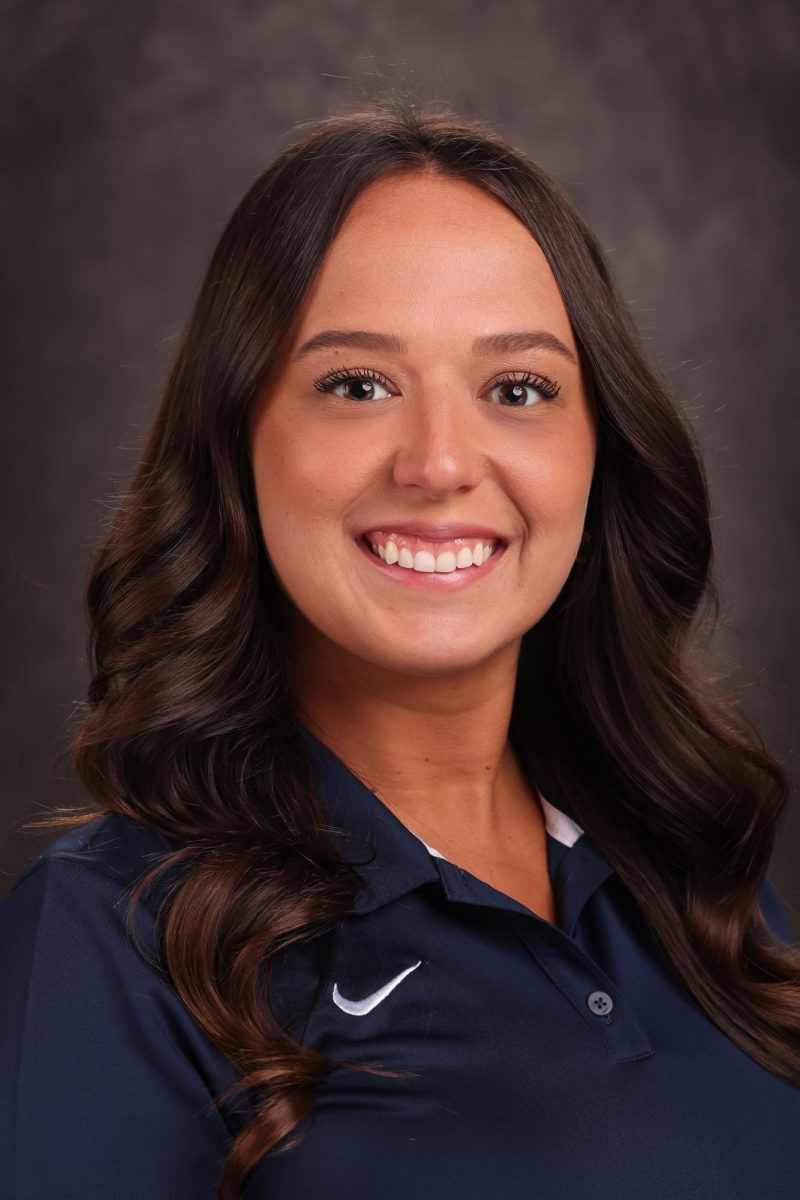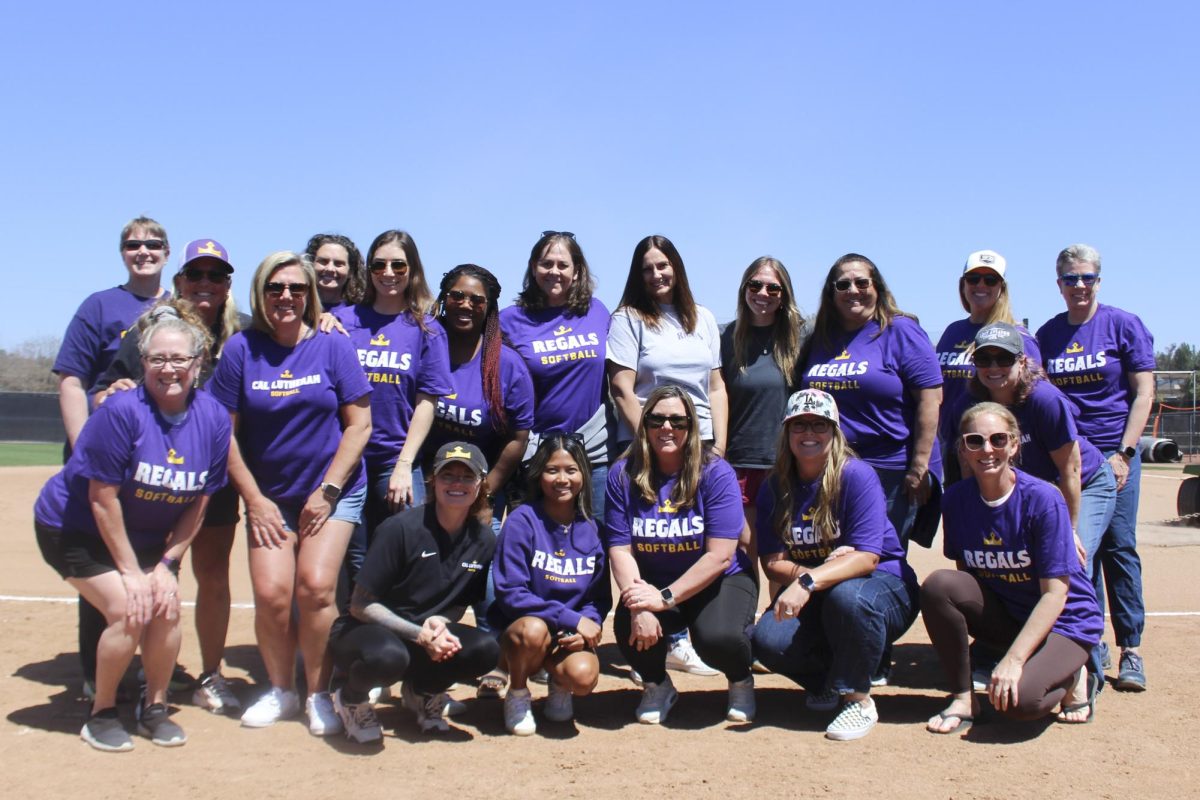Career Services hosted a virtual Sports Psychology Information Session on March 27 on Zoom with keynote speaker Dr. Jenny Kraska, who is a California Lutheran University alumna, licensed clinical and sports psychologist and the assistant director of clinical and sport psychology at the University of Arizona.
During the session Kraska highlighted her work in the field, the path she took to achieve it, information about sports psychology, and her background as a student wanting to become a sports psychologist.
Becoming a sports psychologist was something Kraska said she knew she wanted to pursue at a young age while on her way to a soccer tournament, reading a sports psychology book to calm her own nerves.
“I just remember feeling nervous for the game and I was trying to do everything I could to mentally prepare myself to perform at such a young age. I didn’t even know if it was registering,” Kraska said. “So from a young age, I learned about what it was and was trying to do it.”
Kraska said that as a student-athlete throughout middle school, high school, and in college she had never had a sports psychologist work with her. She said this was because it was such a small field at the time and wished she did have one work with her.
Kraska is now one of four sports psychology providers at the University of Arizona, and works with intercollegiate student-athletes primarily providing individual mental health and performance counseling amongst other roles.
“[Student-athletes] are under an immense amount of pressure and scheduling demands and amongst all of this, they’re expected to perform at insane levels at all times. It takes a toll,” Kraska said.
Kraska also provides assessments, coach consultations, team sessions, outreach and education programming, crisis response, medical team meetings, creation of policies, traveling, practice attendance, game attendance, and plenty more.
Kraska noted that at the collegiate level, the sports psychology field is growing and that at the Division I level, it is now mandatory to have a clearly designated mental health person accessible to student-athletes as part of the NCAA best practices.
She said the NCAA may be trying to expand this to all other divisions because of the need for it, despite a stigma against mental health services when it comes to student-athletes who may be discouraged from looking for help due to societal pressures.
“You’re just training your brain instead of your body, just like you would go see an athletic trainer for a sprained ankle or prehab [like] prevention strategies to take care of your body,” Kraska said. “Sports psychology is here to do that for your brain. We’re taking care of your brain, teaching you prevention strategies, and also things to use when things do get really hard. I’ll use that kind of metaphor to talk about that, normalizing us. I just validate that yeah, it’s hard to come in here. It’s very vulnerable but in vulnerability, there’s a lot of strength.”
Throughout the session, Kraska gave advice and tips to students who want to get into the sports psychology field.
JP Guimaraes is a first-year MBA student who graduated in May 2023 with a Bachelor of Arts in Psychology. He said he is looking to become a sports psychologist because of his interest in the field and sports background as a student-athlete at Cal Lutheran.
Guimaraes said going into the sports psychology field was something that he found confusing to navigate through but that he was able to take away information from Kraska’s session.
“It kind of freaked me out as I came out of undergrad,” Guimaraes said. “It was great to talk to Dr. Kraska. She was so informative and to hear so much from her, especially someone who was a triple alumni from Cal Lutheran, it’s pretty cool.”
Guimaraes said he pursued the sports psychology route because of his passion for golf, and it still encouraged him to be close to his passion for sports like Kraska did beyond her soccer days in college.
“You put so much time and effort into getting better and playing your sport that it’s hard to see past that. It’s pretty scary but it’s cool that [Kraska] was able to find an outlet to be a high performer in a different field but still kind of be close to sports. I think it was a bit inspiring and cool to see,” Guimaraes said.
Kraska encouraged students to try to major in psychology or related majors and take as many sports psychology classes as they could even if they had to take virtual classes from other colleges to acquire the coursework needed.
Kraska said there were not too many differences from her experience because the sports psychologists she works with do similar tasks even with differences in those with master degrees or doctorates. The main differences she brought up were the differences in pay and the ability to give assessments and diagnostic analysis training.
Though Kraska said she was not able to obtain them when she was a student because sports psychology was a small field when she was in college, she advised students to look into internships, join research groups, volunteer at psychiatry, and do clinical training and hours needed to gain experience.
Kraska also talked about building networks for students wanting to join the field. She recommended that they join the Association of Applied Sports Psychology, a national organization to learn about their resources and opportunities.
As a last note for the session, Kraska said she wanted students to know that the field is rapidly growing and that the stigma around mental health is improving. She hopes this encourages athletes to seek and advocate for their mental health, especially at the collegiate level.
Assistant Director and Counselor for Career Services Cynthia Smith said alumni reach out to her to set up events such as this one to share how they acquired their current roles, give advice to students looking to get into the same fields and introduce another avenue for students to explore in finding their ideal careers.
“It’s even better that we’ve got an alumni coming back because our students love to hear from our alumni and see what they’re doing and how successful they’ve been,” Smith said. “It’s great to have opportunities like that but I think it resonates a little bit more when it’s somebody that’s been in their shoes before.”
Smith said she wants students to know that these events and other services provided by Career Services such as job search workshops, social media workshops, resume building, salary discussions, and more are available to Cal Lutheran students for life and can be accessed through CLUPostings.com.
“One of the things that makes our department unique is that we provide services to alumni at no cost, so it’s one of the services our students take with them even after they graduate,” Smith said. “We don’t charge for anything other universities will charge or limit the number of things they can do with their Career Center after they graduate. Our services are completely open to all of our alumni in all of our programs.”
Career Services is available for virtual and in-person appointments and the workshops they offer are divided between virtual and in-person with different times to accommodate different schedules.







